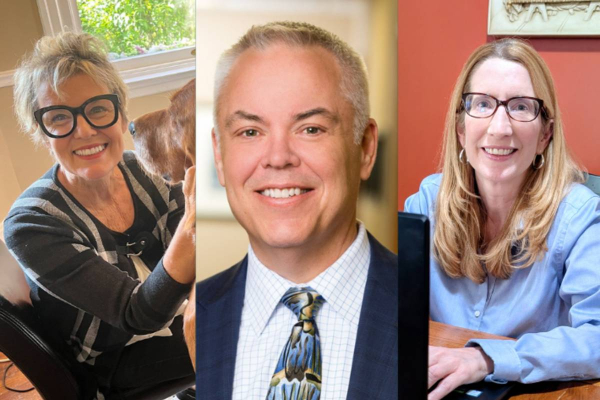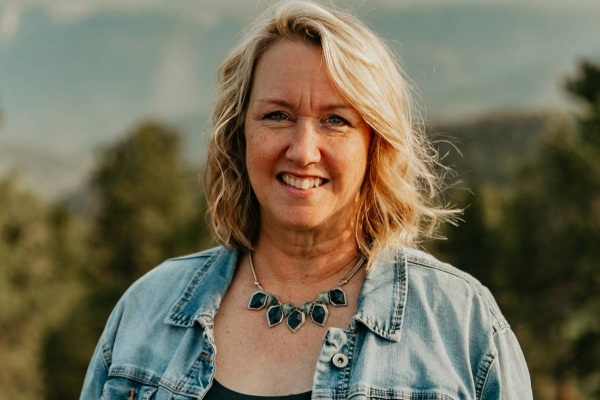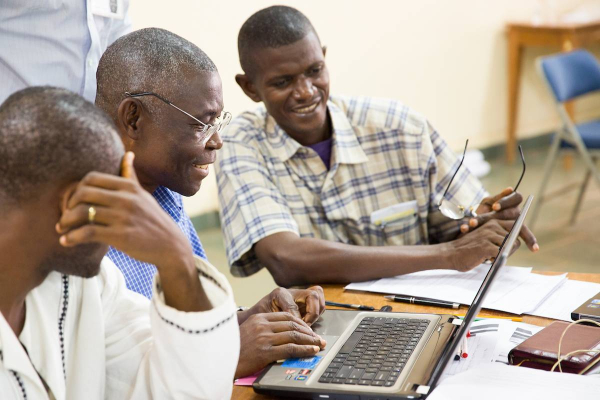When Weakness Stays: One Missionary’s Unexpected Journey
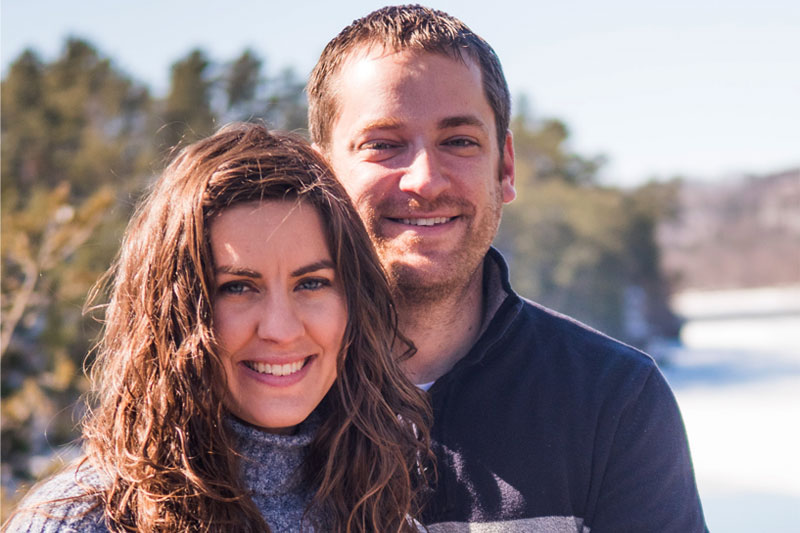
When Catherine Graul arrived in Papua New Guinea in 2011, she was young, energetic and eager to begin work on a Bible translation project. There was just one hiccup: In most areas of the country, single female translators needed to work in teams of two but Catherine had no partner.
While considering her options, Catherine agreed to help out where she could, filling temporary roles in everything from literacy to teacher training. “I moved 24 times and worked in 17 different projects,” she explained.
By the end of her initial term in 2013, all the travel and transition had taken a steep toll on Catherine. “I came back to the U.S. for my first furlough, and I was really sick and exhausted,” she said. In addition to burnout, Catherine was diagnosed with celiac disease and adrenal fatigue, but she loved her life in Papua New Guinea and was determined to get healthy enough to return as soon as possible.
But just two months into her second term, Catherine began to realize that something was still seriously wrong. “I was lying in a tiny village house out in the middle of nowhere. They were telling us to come get dinner, and I was like, ‘I can’t get dinner. I can’t even move!’” Under doctors’ orders, she reluctantly ended her travels around the country and took some time to rest.
“I wasn’t going to go home [to the U.S.], so I scaled back everything,” Catherine shared. However, her body refused to bounce back the way she’d hoped.
She disliked feeling sick, but as a trained linguist and writer, she was especially unprepared for the alarming way her extreme exhaustion impacted her mind. “I couldn’t put words together. I would look at basic objects like a chair or table and I’d just be like, ‘that thing.’”
Catherine couldn’t even think clearly enough to form prayers. “What use am I?” she wondered as she spent day after day on the couch.
Serving Through Weakness
As Catherine’s health continued to falter, she began to find a helpful rhythm. “When I would wake up in the morning I would pray, ‘Lord, help me to do the things you want me to do and not do the things you don’t want me to do, and help me be satisfied in that,’” she said. “And then at the end of the day I would pray, ‘Thank you for today. Today was good because you are good.’” These regular statements of truth enabled Catherine to find contentment in her weakness while also allowing her to look ahead with hope in Jesus. “God was not asking me to put my hope in circumstances or change. He was asking me to put my hope in a person and that’s completely different,” she stated.
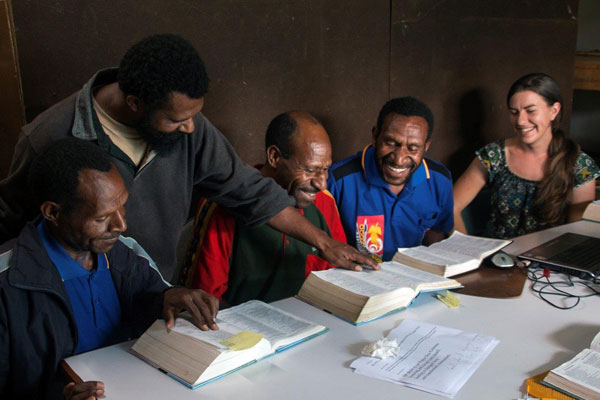
Eventually Catherine was well enough to work three and a half days a week on a local Old Testament translation project with the Kamano Kafe language group, filling in for the regular team leader while he was away. Before the team leader left, Catherine had prayed with him that the Kamano Kafe people would take more ownership of the project under her temporary leadership.
Her weakness turned out to be exactly what the team needed. When heavy rain flooded their small office and caused the roof to leak, the Kamano Kafe men realized Catherine could do nothing to help, so they planned and completed repairs on their own. They also took the lead on organizing the sale of Scripture portions during a large Kamano Kafe event. “It was really a turning point for them,” she marveled.
Blessing Through Struggle
Although Catherine saw God work through her weakness in amazing ways, he didn’t take her sickness away. “I ended up sicker at the end of that whole year of translating with them than I was starting out. I got worse and worse.”
Her persistent suffering didn’t line up with much of what she’d heard in churches in the U.S., and she realized some Christians didn’t understand her experience. “[They’d say], ‘You’re obeying God so let’s see him give you amazing power and sustain you through this and make you healthy.” God did accomplish incredible things, but it didn’t result in Catherine becoming healthier.
In 2016 Catherine returned to the U.S., expecting to get more treatment and then return to Papua New Guinea. But her trip turned into a lengthy medical leave. In 2018, Catherine flew back to Papua New Guinea just long enough to wrap up the final details of her work there. “It was a really challenging experience,” she confessed.
Uprooted and unsure of what to do next, Catherine decided to enroll in a Perspectives course. “That’s where God reignited my passion for Bible translation,” Catherine said.
Now she serves as the content manager for Wycliffe USA’s planning, staffing and development team, helping others find their places in the work of Bible translation. And God had another unexpected blessing waiting for her in the U.S. “I would not have met my husband if I hadn’t come back!” Catherine said.
Rooted in Truth
While Catherine is better than she was a few years ago, her physical weakness remains a mystery. “I have been to 47 medical professionals over the last seven years since this started. No one knows, and we’ve tried so many different routes.” However, her ongoing struggle only reinforces the truth she learned in Papua New Guinea. “God showed me in a really big way that he’s … asked us to simply obey and abide. To him, faithfulness is more important than successfulness. … My identity’s in who he said I am and not what I can accomplish.”
Ephesians 3:20-21 has been a special encouragement to Catherine: “Now to him who is able to do immeasurably more than all we ask or imagine, according to his power that is at work within us, to him be glory in the church and in Christ Jesus throughout all generations, for ever and ever! Amen” (NIV).
“I get to read Scripture every day. It has informed my life,” Catherine emphasized. “It has been my lifeline — to cling to those promises when I don’t feel them emotionally, to know them and repeat them over and over in my heart.” Catherine’s love for God’s Word fuels her desire for everyone to know God’s promises for themselves. “I’ve had access to all of that since I was born and there are millions of people who don’t even have that opportunity,” she explained soberly. “Jesus died for these people and loves them, and he desires for them to know it and hear it. How can I not be part of something like that?”
To learn more about building a theology of suffering, watch this webinar.


